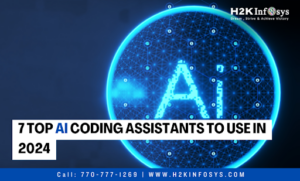As indicated by IDC (International Data Corporation), the quantity of AI occupations is foreseen to grow 16 percent this year.
In the midst of all the tumult, Artificial Intelligence is now making its way into a phase where it is said that to replace some employment functions with smart gadgets and mechanization. Moving further, AI has been a sound career decision for some time now in view of the developing appropriation of the innovation across businesses and the requirement for trained experts to carry out the responsibilities created by this development. Statistically, as per the site Indeed, the interest in AI skills has dramatically increased in the course of recent years, and the quantity of job postings is up by 119 percent.
Therefore, saying that the career in Artificial Intelligence is touching new heights, is an appropriate statement. On the same front, we have gathered the best resources to layout Artificial Intelligence career prospects in this article. Having said that, before jumping right into the career opportunities associated with Artificial Intelligence, let us go through the basic responsibilities that an AI professional carries:
- An AI engineer constructs AI models utilizing machine learning algorithms and deep learning neural networks to draw business details, which can be utilized to settle on business choices that influence the whole organization.
- AI experts help to protect the company’s computer networks, computer systems, memory, frameworks, and more.
- Conduct statistical analysis and tune the outcomes with the goal so that the business can make well-informed decisions.
- They can create services, for example, chatbots, perform image recognition, and additionally, language handling.
- Probably the best AI esteem is conveyed in basic manners, for example, computerizing routine undertakings ― may be data extraction from archives ― which can furnish less expensive processing with more prominent exactness.
Now that we understand the basic responsibilities almost all Artificial Intelligence carry, let us go through the career opportunities in AI.
Machine Learning Engineer
In order to become a machine learning engineer, one must have an upper hand in applying predictive models managing eminent data. Machine learning engineers are engaged with building and maintaining self-running programs and software that encourages machine learning activities. They are in persistent interest by the organizations. They work in the territories of image and speech recognition, avoidance of frauds, client-based insights, and management of defects and risks. Furthermore, for an aspiring Machine Learning Engineer, having inside and out information about neural networks, machine learning algorithms, and deep learning is exceptionally advantageous.
Data Scientist
A Data Scientist holds an imperative place in creating algorithms that empower the assortment and cleaning of data to prepare it for data analysis. With regards to jobs in artificial intelligence, data scientists earn a yearly average pay of $120,931.
Furthermore, the position of the business is emphatically affected based on a data scientist. Employment seekers are needed to be outfitted with modern tools like Hadoop, Pig, Spark, or Hive while seeking this job. Additionally, the applicant must be acquainted with utilizing programming languages like Python, Scala, or SQL.
Big Data Engineer
The job of a Big Data Engineer is to make an environment for the business frameworks to interact proficiently. Their essential undertaking is to create and adequately administer big data of a business. Also, Big Data Engineers need to carry the function of obtaining results from big data in a rigid manner.
Contrasted with data scientists, this job can feel more involved, as big data architects and engineers are commonly entrusted with arranging, planning, and building up the big data environment on Hadoop and Spark frameworks. Moreover, they need to consist of knowledge and experience participating in data visualization, data migration, and data mining.
So, what are we waiting for?






























